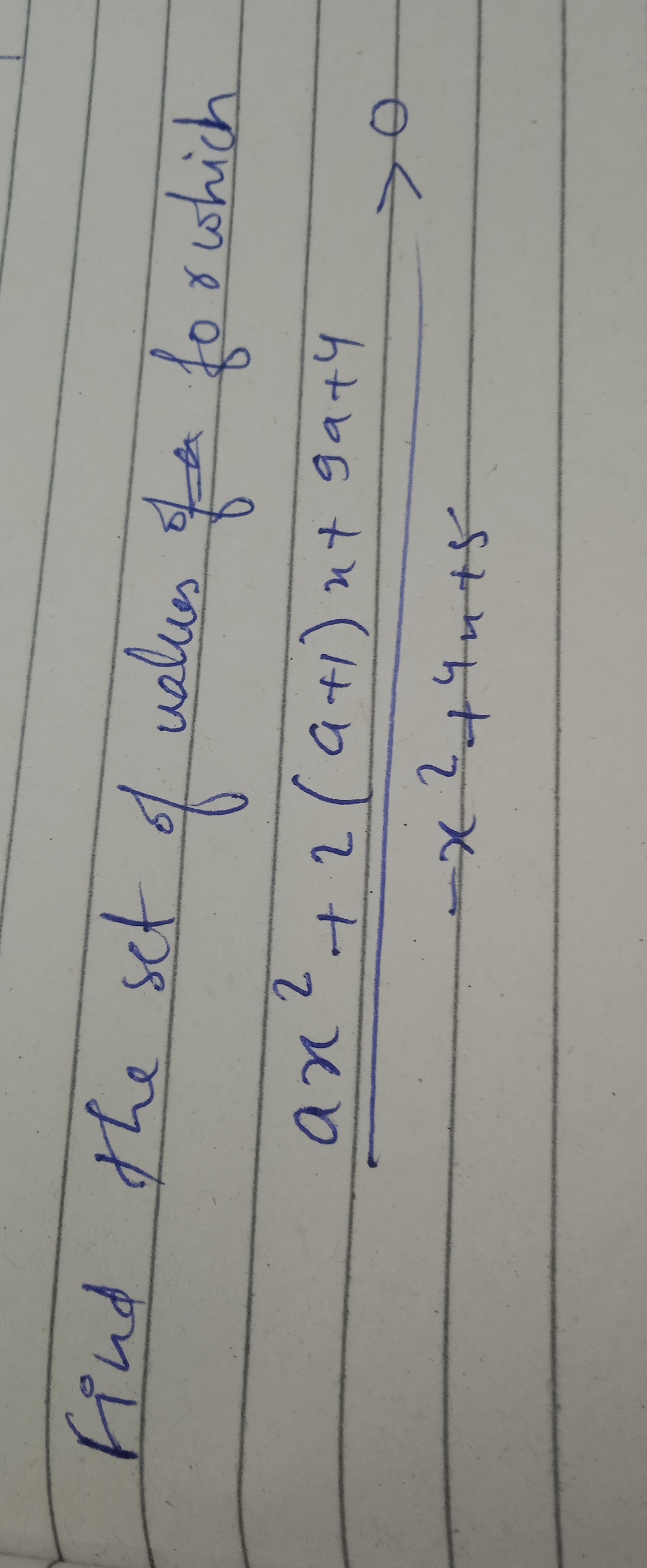Question
Question: Find the set of values of a for which $\frac{ax^2+2(a+1)x+9a+4}{-x^2+4x+5}>0$...
Find the set of values of a for which
−x2+4x+5ax2+2(a+1)x+9a+4>0

There is no real number a such that
−x2+4x+5ax2+2(a+1)x+9a+4>0for all real x (with −x2+4x+5=0).Solution
We wish to find all real numbers a such that
−x2+4x+5ax2+2(a+1)x+9a+4>0for all real x (with −x2+4x+5=0).A typical strategy for “for all‑x” problems is to make sure that the numerator and the denominator have the same sign for every x (except when the denominator is 0). Note that the denominator
D(x)=−x2+4x+5can be rewritten as
9−(x−2)2.Thus,
- D(x)>0 when (x−2)2<9 i.e. when −1<x<5,
- D(x)<0 when x<−1 or x>5.
For the fraction to be positive for every x (where it is defined) we must have
- In the interval −1<x<5 (where D(x)>0): the numerator N(x)=ax2+2(a+1)x+9a+4 must be positive.
- In the regions x<−1 and x>5 (where D(x)<0): we must have N(x)<0 so that the ratio is positive.
Since N(x) is a quadratic it can change its sign only once (i.e. it has at most two zeros). In fact, if its leading coefficient is negative (so that it is “∩‐shaped”), then it will be positive only between its two real roots and negative outside. Hence, for the sign of N(x) to “mimic” that of D(x) we would need the two zeros of N(x) to occur exactly at the points where D(x)=0, namely at x=−1 and x=5. (If the zeros were different the sign–changes would not line up with the intervals where the denominator has a fixed sign.)
Thus we impose
N(−1)=0andN(5)=0.Let’s compute these:
-
At x=−1:)
N(−1)=a(−1)2+2(a+1)(−1)+9a+4=a−2(a+1)+9a+4.Simplify:
=a−2a−2+9a+4=8a+2.Setting N(−1)=0 gives
8a+2=0⟹a=−41. -
At x=5:)
N(5)=a(25)+2(a+1)(5)+9a+4=25a+10a+10+9a+4.Simplify:
=44a+14.Setting N(5)=0 gives
44a+14=0⟹a=−4414=−227.
For the desired situation we would need both conditions to be satisfied simultaneously. However,
−41≈−0.25and−227≈−0.318,and clearly
−41=−227.Thus, it is impossible for the numerator to change sign exactly at x=−1 and x=5. In other words, there is no real number a for which
−x2+4x+5ax2+2(a+1)x+9a+4>0for all x (with −x2+4x+5=0).